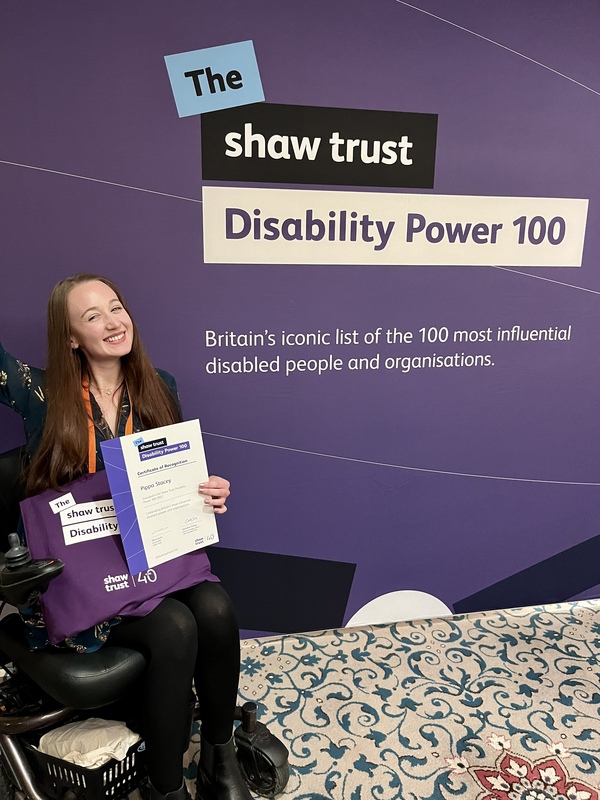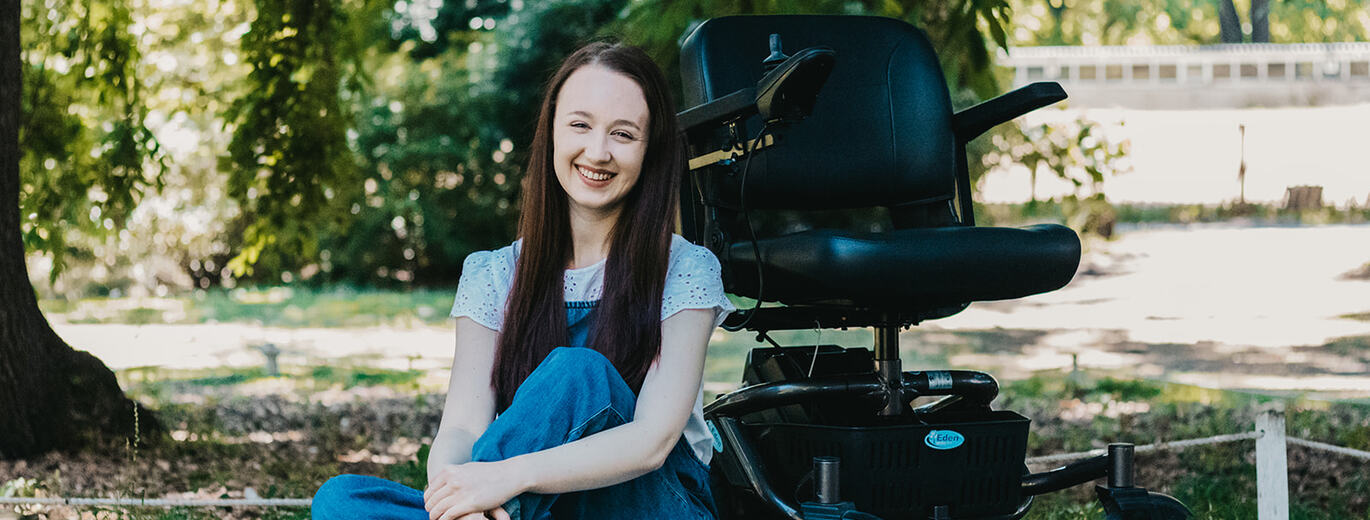Disability Pride Month – why belonging starts with understanding
July marks Disability Pride Month. Originating in the USA back in 1990, this month is now recognised globally as a time to come together and celebrate the disability community while calling for continued action to build a more inclusive world.
The movement is continuing to gain traction, however there are many organisations who aren’t yet aware that Disability Pride Month exists, yet alone have plans to acknowledge it. If you’re reading this as somebody who isn’t familiar with the cause yet, fear not – let me share with you why joining in now, and positioning your organisation as an ally, has never been more crucial.
What Belonging Means
The theme of this year’s Disability Pride Month is ‘we belong here, and we’re here to stay’ – a powerful statement that resonates with many disabled people who are trying to find their place in a society and world that wasn’t built for us.
Belonging looks different to every disabled person – often, the things we need in order to thrive and to feel included are as unique as we are. However, many of us share, or have previously shared, the experience of feeling isolated. Previous research suggests that at least 61% of disabled people are chronically lonely, and 85% of people with Energy Limiting Conditions feel isolated by society’s failure to recognise the impact of their condition.
The growing body of research combined with people’s lived experience paints a clear picture – belonging begins with understanding, and we want to see more of it.
As somebody living with an Energy Limiting Condition myself, this theme truly speaks to me. One example is the fact that I’m rarely well enough to leave the house as often as I’d like to: during the initial years of adjusting to life with my condition, I had never felt more invisible. It seemed as though the whole world was continuing to move forward while I was trapped exactly where I was, and I could physically feel my place in the world and that sense of belonging that I’d always taken for granted beginning to fade away.
The only experience I could liken this to for non-disabled people is the UK lockdowns that were enforced during the early years of the pandemic. However, it was during this exact time, as everybody else struggled to cope with being stuck in the house, that I felt something unexpected happening. As our entire lives, work, and leisure time shifted to being remote and online, I experienced a greater sense of belonging than I had in years. I was able to watch musical theatre performances, join in with virtual book launches, socialise and play games with friends from my bed, and even learn new hobbies without stepping foot out of my house. I no longer felt left behind – and all it took was a few simple adjustments.
Although remote opportunities like these have never quite been as full and accessible in the years since those turbulent times, there is definitely more openness to hosting events online now than there was before. Sometimes, all it takes is small steps like these to facilitate an incredible sense of wellbeing and belonging for those who are craving it the most.

Understanding Begins With Listening
Nobody was thinking specifically of disabled people when the world shut down and everything became online – the change that many chronically ill people had spent decades advocating for finally happened when non-disabled people needed it too. However, through this time there were many organisations and event organisers who realised that by adding a virtual element to their work, they had the exciting opportunity to reach an entire new community.
Those years were a time when disabled people were being listened to – truly listened to – more than ever before, and we had an accessible platform to share our lived experiences. Forward-thinking organisations, policymakers and thought-leaders began to pay attention to what we had to say, and the changes we wanted to see in order to build a more inclusive world. Even just within my own sphere, I was so impressed by the empathy, integrity, and openness I was witnessing from the people I was consulting with – when people were willing to share the gaps in their knowledge of disability and remained open to hearing my lived experiences, we were able to identify solutions that were mutually beneficial for the organisation and the thriving disability community they hoped to engage.
Disability Confidence Matters
In the past, it’s no secret that disability inclusion has often been seen as a tick-box exercise – something people did because they had to, and nothing more. However, it’s time that more organisation recognised just how much there is to gain from becoming informed and confident around disability.
I’ve lived with my chronic illness since I was a teenager, and as I’ve become a wheelchair user and my disability has become more visible to others, I often have to be vigilant and prepared to advocate for myself simply as I go about my day. Like every disabled person I’ve had my fair share of less-than-positive interactions, but when you do have a positive experience, it’s something you don’t forget. When we find a service, venue, or team that welcomes us and fuels that sense of belonging that we crave, we become very loyal customers. And you can bet we’re probably going to tell our disabled friends (and in some cases, our online audience) about it too. From there, the snowball effect begins…
There is so much to be gained from deepening your understanding of the disability community and how you can be an ally, and this Disability Pride Month is the perfect opportunity to begin (or progress) that journey.

